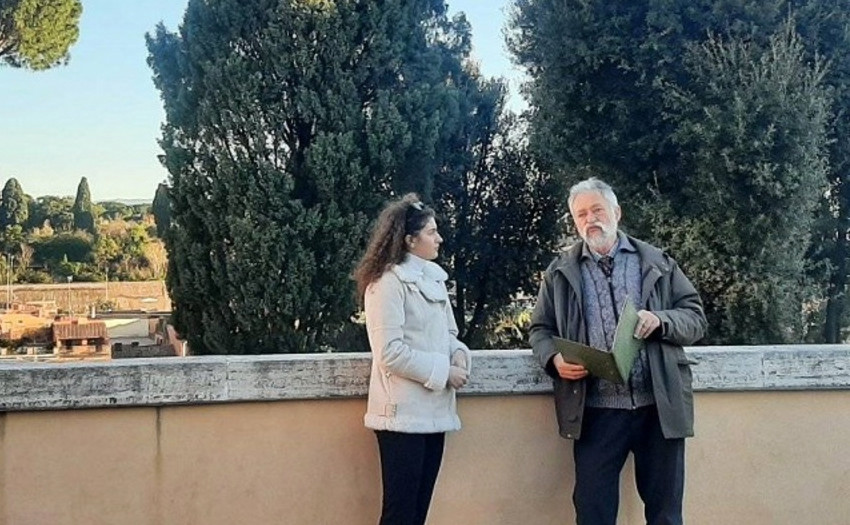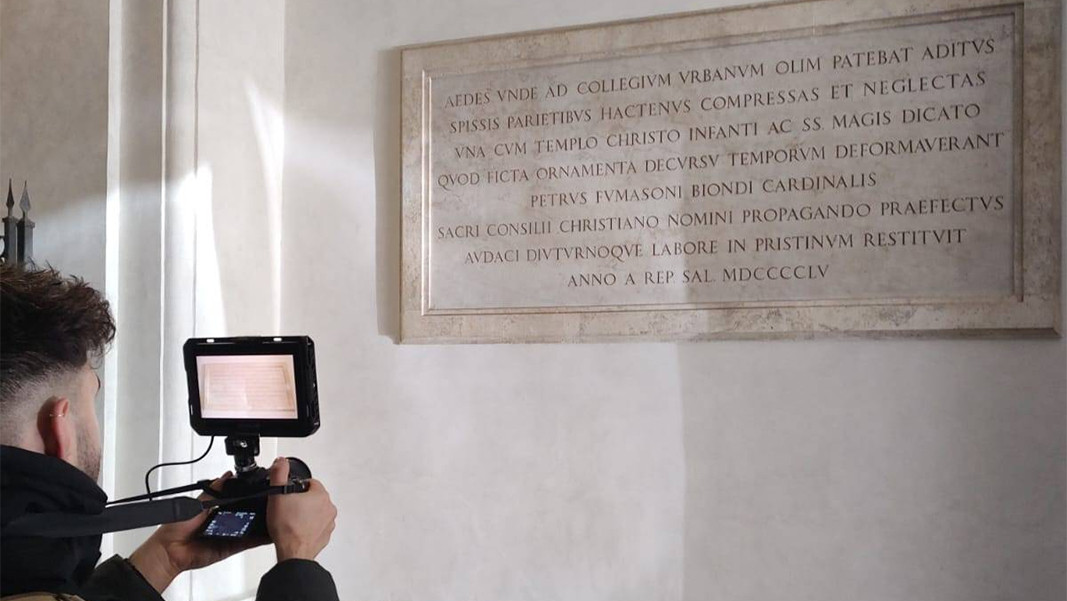The Bulgarian Sunday school Asen and Iliya Peykovi and students from the Krastyo Sarafov National Academy for Theatre and Film Arts in Sofia are working on a joint project – a documentary about three prominent figures who fought for the national independence of Bulgaria – the Bulgarian Catholics Petar Parchevich, Filip Stanislavov and Petar Bakshev.
“The eternal city is a place where history is treasured, a place where you can touch history, that is why we have been photographing the physical locations connected with the Bulgarian Catholics – the Papal colleges where they studied, the place where Petar Parchevich lies buried, i.e. everything that is physically located in Rome,” Veneta Nenkova, founder of the Bulgarian school in Rome and chair of the Parallel 43 cultural association in Rome said in an interview with Radio Bulgaria. The students Blagitsa Stoimenova, Zdravko Menchev, Petya Sergieva and Georgi Momchilov have been working on the documentary film.
“One of the most prominent researchers of Bulgarian Catholics in Rome, Prof. Krassimir Stantchev, is also involved in the film. He has been working with the Vatican archives for years. A book he has been working on for 30 years is to be released soon – it is about the Bulgarians who studied at the Papal colleges in Rome, Assisi and Loreto, and who were active, during the 17th century, on the territory of Bulgaria and elsewhere,” Veneta Nenkova says.

Petar Parchevich is the first diplomat of Bulgaria. The first printed book in the modern Bulgarian language in Rome in 1651 is the work of Filip Stanislavov, while Petar Bogdan Bakshev wrote a history of Bulgaria approximately 120 years before the famous Slavonic Bulgarian History by Paisius of Hilendar.
“We find all this in the Vatican archives. Our school has, for years been making efforts to unravel the history of Bulgaria using the Vatican archives, and where possible, buying pages from the Papal newspaper,” Veneta Nenkova says, as quoted by the Bulgarian news agency BTA. As to the new project, she says:
“We have been working with students from the National Academy for Theatre and Film Arts, under Erasmus+ for years, and this year we decided to make a film about Petar Parchevich, Filip Stanislavov and Petar Bakshev because 2024 marks 350 years since the death of the three. The life of Petar Parchevich ended here. He came to Rome in 1674 to ask for the Catholic church’s help for the liberation of Bulgaria from Ottoman domination, and stayed at the Sant'Andrea delle Fratte monastery which is in the centre of the city. He died and was buried in the church crypt, where there is a memorial plaque.”

The documentary will be in Bulgarian, with subtitles in Italian. It should be ready by 2024.
Photos: Veneta Nenkova
This year, the holiday of Christmas for the Bulgarian Eastern Orthodox Diocese in the United States, Canada and Australia is especially exciting! Metropolitan Joseph’s long-standing prayers to have his own vicar bishop have come true. His previous..
His Holiness Daniil, Patriarch of Bulgaria and Metropolitan of Sofia, addressed the Orthodox Christians on the eve of the bright Nativity of Christ (Christmas Eve). "Silent in prayer, gathered around the warm hearth, we await the fulfilment of what was..
In anticipation of the Nativity of Christ, the Orthodox Church opens its doors for today's divine services, heralding the fulfillment of the mystery of the Incarnation. "Let us experience the Nativity of Christ during the solemn services, so..

+359 2 9336 661
